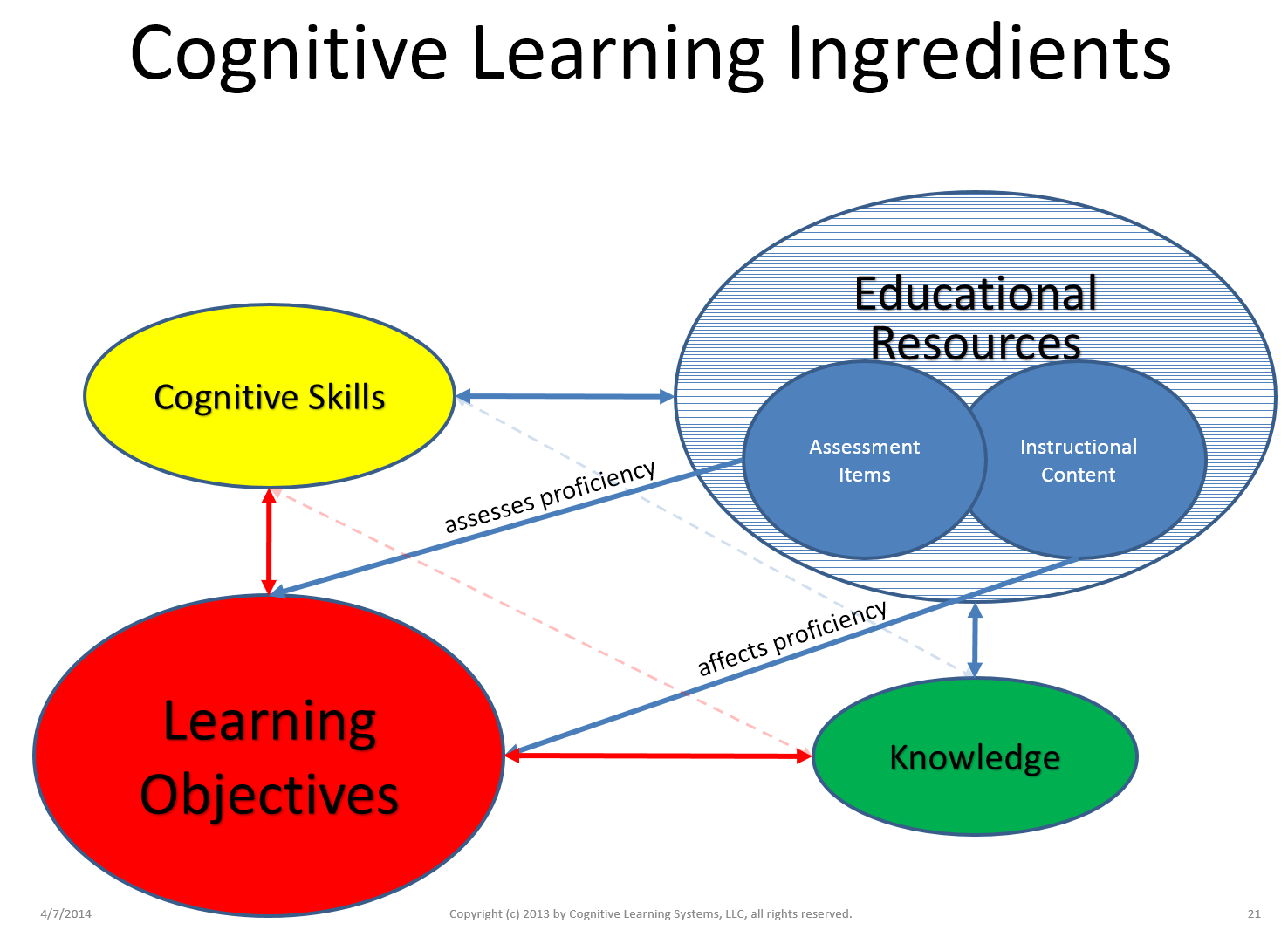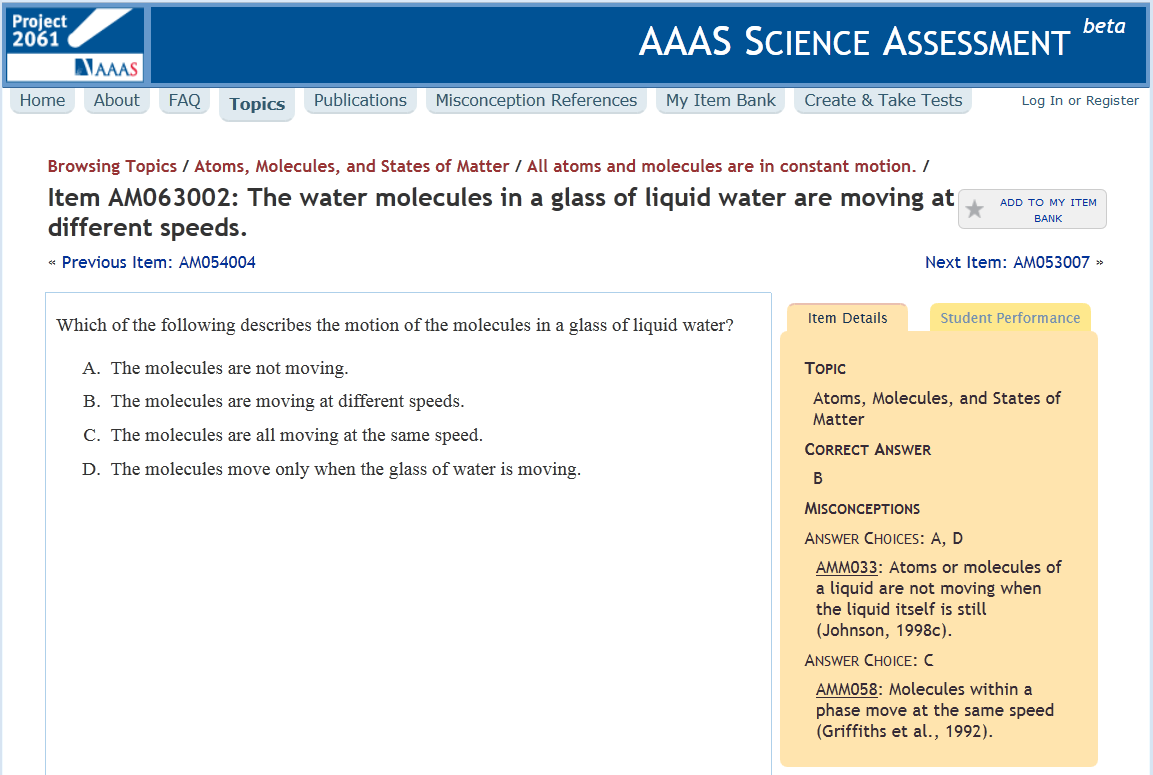Thesis: the overwhelming investment in educational technology will have its highest economic and social impact in technology that directly increases the rate of learning and the amount learned, not in technology that merely provides electronic access to abundant educational resources or on-line courses. More emphasis is needed on the cognitive skills and knowledge required to achieve learning objectives and how to assess them.
Cognitive modeling of assessment items
Look for a forthcoming post on the broader subject of personalized e-learning. In the meantime, here’s a tip on writing good multiple choice questions:
- target wrong answers to diagnose misconceptions.
Better approaches to adaptive education model the learning objectives that are assessed by questions such as the following from the American Academy for the Advancement of Science which goes the extra mile to also model the misconceptions underlying incorrect answers:
Electronically enhanced learning
We are working on educational technology. That is, technology to assist in education. More specifically, we are developing software that helps people learn. There are many types of such software. We are most immediately focused on two such types.
- adaptive educational technology for personalized learning
- cognitive tutors
The term “adaptive” with regard to educational technology has various interpretations. Educational technology that adapts to individuals in any of various ways is the most common interpretation of adaptive educational technology. This interpretation is a form of personalized learning. Personalized learning is often considered a more general term which includes human tutors who adapt how they engage with and educate learners. In the context of educational technology, these senses of adaptive and personalized learning are synonymous. Continue reading “Electronically enhanced learning”



